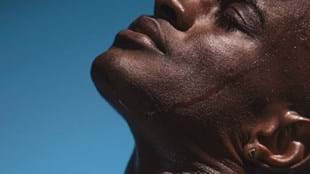There’s nothing abnormal about sweat. It’s a fundamental bodily function that provides us with much needed thermoregulation. Whether we’re soaking up the sunshine or powering away at the gym, as soon as our body heats up our sweat glands kick into action and trigger a sweat response to keep us cool.
So how much sweat is normal?
The sweat response is dictated by variability in our DNA and differs from person to person. This is why you might be dripping sweat during your cycle class, but someone doing exactly the same workout right next to you seems totally sweat-free.
But DNA isn’t the only factor. If a fit person and a not-so-fit person complete the same workout, it will likely be the not-so-fit individual who sweats the most. This is because they have to work harder to complete the same activity. However, as your fitness level improves, so too does your body’s ability to cool under stress – so your sweat response quickens. You start sweating more swiftly, which means you can regulate your temperature more effectively, you can keep training for longer, so you start building your fitness even faster.
Dr Vybarr Cregan-Reid says our ability to sweat is an evolutionary imperative that has given us an advantage over other mammals. “Sweat is about as essential to being human as having a brain is, and has played a key role in the evolutionary success of our species … the reason we’re at the top of food chain is partly due to the fact we sweat, but also the way we sweat, on particular parts of our body.
How sweat has helped the human species
According to Dr. Cregan-Reid, as a species we’re terrible sprinters. “Animals the size of our palm can run faster than we can. But in certain environments, we have distinct advantages over other animals, because animals, like antelope or deer, aren’t able to lose heat as efficiently as we can. And because they’re quadruped (four-legged), more of their body is exposed to sun on a hot day. So not only do they capture more heat from the sun, but they’re less efficient at losing it. We’re two-legged so we’re slower, but we don’t take on as much heat, and we have efficient cooling technology all over our body.”
He adds that horses are the only animals to sweat in a similar way to humans. But they have a sort of waterproof coat, so they have a different protein in their sweat that allows it to foam up, pass through their waterproof coat and evaporate.
Do we sweat differently in different places?
Dr. Cregan-Reid explains we have two main kinds of sweat glands, eccrine and apocrine. “Eccrine glands – the thermoregulation glands – are the most numerous type. They’re found all over the body, particularly on the palms, soles of the feet and forehead. Having eccrine sweat glands on an exposed forehead, for instance, means the blood going to your brain is kept cool, so we can think while we’re in motion. The top of the head, meanwhile, is shaded by hair, so it also takes on less heat.
The other type of sweat, the apocrine sweat, is mainly for scent and found in the armpits and the groin. Unfortunately for us, its job is to smell – it’s like our olfactory fingerprint. And because it’s released in areas where it can’t evaporate quickly, it comes into contact with bacteria, starts to break down, and starts to smell. It’s a different kind of sweat, with a different function.
The sweat on our arms, legs and forehead doesn’t smell because there’s quite a lot of salt in it, and the bacteria doesn’t like it. This means it usually gets to evaporate before bacteria get to work on it.
The reason you have sweaty palms is you’re having a fight or flight response. If you have sweaty palms you can run and climb up a tree more easily, because sweaty palms gives you extra grip to hold onto things. But it’s an evolutionary throwback, something that happens when adrenaline is released. So sweaty palms and feet might have made sense, because it would enable you to grip better if you were running or climbing.
The upshot is … sweat is a good thing. So next time you’re dripping mid-workout, stop worrying about how sweaty you are. Instead focus on how much more you can push yourself. After all, the fitter you are, the faster your sweat response, and the easier it becomes to unlock your athletic potential.
If you want some help staying cool, dry and focused as you train, choose adidas’ AIRCHILL technology - it's designed for ultimate breathability and sweat-fighting performance during your toughest workouts.









